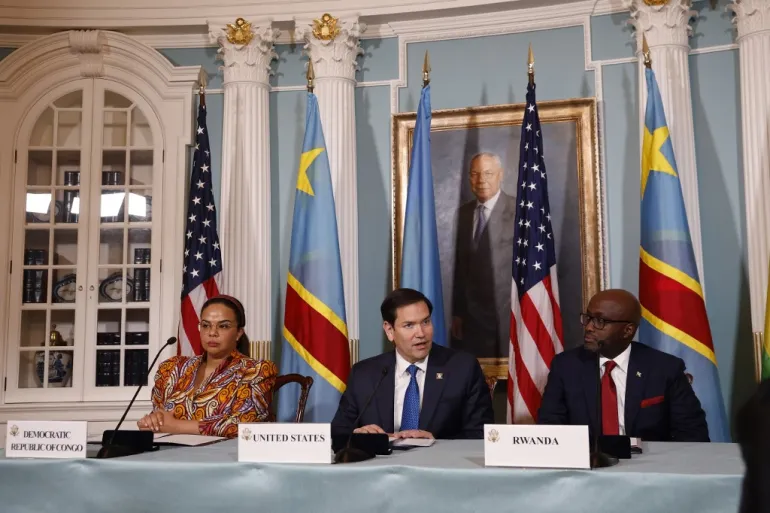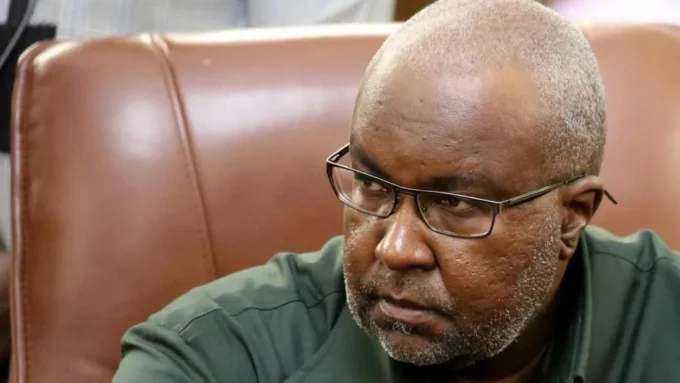In a significant diplomatic breakthrough, the Democratic Republic of the Congo (DRC) and Rwanda have committed to drafting a peace deal by May 2, 2025, with both nations agreeing to respect each other’s sovereignty and refrain from providing military support to armed groups. The agreement was signed by DRC Foreign Minister Therese Kayikwamba Wagner and Rwanda’s Foreign Minister Olivier Nduhungirehe in Washington, D.C., on April 25, 2025, following intense discussions between the two nations. This agreement comes two days after a truce was brokered by Qatar, signaling a shift toward reconciliation between the two neighboring countries, which have long been embroiled in conflict, particularly in the eastern DRC region.
The peace talks, facilitated by the United States, come amid concerns over the ongoing violence in eastern DRC, where fighting between DRC forces and armed groups, including the M23 militia, has been intensifying. The United States has expressed interest in fostering stability in the region, as the mineral-rich east of the DRC holds significant potential for foreign investment, particularly in sectors like energy and mining.
The peace deal, which was signed in the presence of U.S. Secretary of State Marco Rubio, marked a rare moment of cooperation between the two nations, though tensions still remain. The agreement commits both sides to cease military support for non-state armed groups, though it does not specifically name the M23 group, which the United Nations and U.S. officials allege has received backing from Rwanda. Rwanda has denied these accusations, stating that its involvement in the region is aimed at protecting its security against hostile militias, including those linked to the 1994 genocide in Rwanda.
In a statement following the signing, Wagner emphasized that the deal represented a commitment for Rwandan forces to withdraw, aligning with a UN Security Council resolution. She highlighted that while the agreement provided hope for peace, the path to lasting peace would require transparency, sincerity, and serious efforts from both sides. Nduhungirehe also pointed to a shift in the conversation regarding the DRC, noting that the engagement of U.S. President Donald Trump had been instrumental in encouraging private-sector investment in the DRC, which could help stabilize the region.
U.S. Secretary of State Rubio praised the agreement as a “win-win” situation for both countries, suggesting that it could pave the way for major U.S.-backed investment, particularly in sectors where China currently holds considerable influence. This peace agreement also follows diplomatic pressure from the United States and the United Nations, with U.S. envoy Massad Boulos visiting both countries and urging Rwanda to stop supporting the M23 and withdraw its troops from DRC territory.
As both nations move forward with drafting the full peace deal, the international community remains hopeful that this agreement will lead to a sustainable peace process, reducing the risk of further violence in the volatile Great Lakes region.














Leave a comment